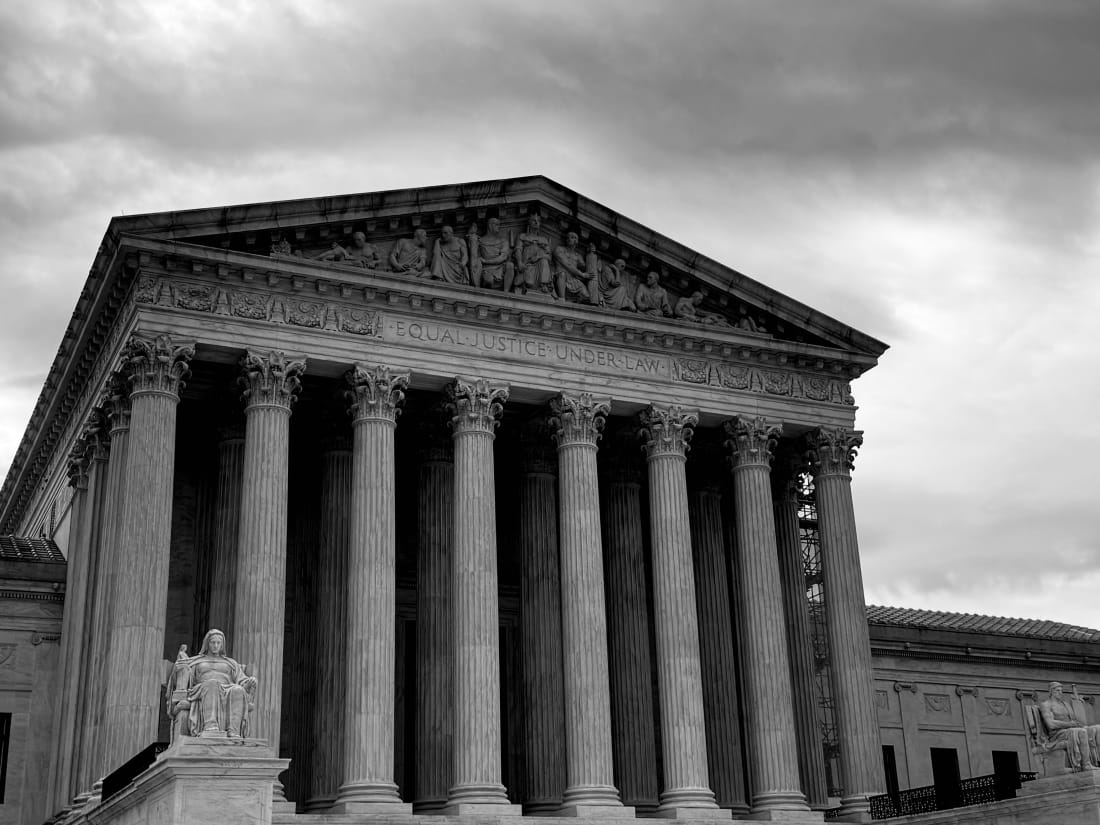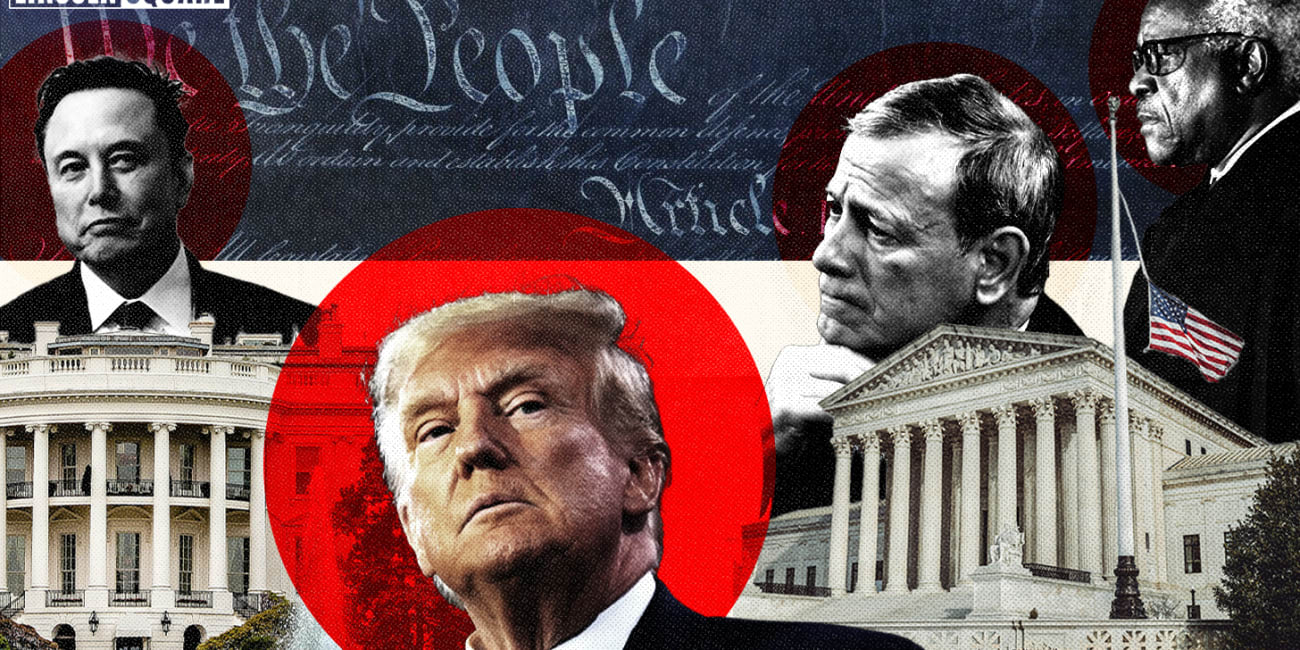|
 |
Get all-access to Lincoln Square content, and to help us amplify the content that you’re reading to Americans who aren’t paying attention, please consider upgrading your subscription today with this limited-time offer:
The Supreme Court Just Handed Down a Devastating Blow to Medicaid
The decision in the South Carolina Planned Parenthood case is more far-reaching than you may think.
By Samuel R. Bagenstos and Hannah Katch
A Supreme Court decision this week will drastically weaken Medicaid — just as congressional Republicans are advancing proposals that would cut it even further.
During the Biden-Harris Administration, we served as General Counsel for the Department of Health and Human Services and as Senior Advisor for Medicaid at the Centers for Medicare & Medicaid Services. Alongside our colleagues, we worked to expand coverage and access to care for the nearly 80 million Americans who rely on Medicaid.
Medicaid provides health coverage for children, parents, pregnant women, seniors, people with disabilities, and others with low incomes. The program is jointly administered by the federal government and the states: the federal government sets the framework — including mandatory eligibility groups and benefits — while states determine how those benefits are delivered locally.
Although Thursday’s Supreme Court decision appears to focus narrowly on abortion, its implications reach far beyond reproductive health.
The case arose because South Carolina kicked Planned Parenthood out of Medicaid — not because its clinics violated any rules, but simply because they perform abortions with non-Medicaid funds. The state wasn't just refusing to pay for abortions (which federal law already prohibits except in narrow circumstances). It was blocking Planned Parenthood from providing any Medicaid services at all, even routine gynecological care.
Julie Edwards is a South Carolina Medicaid beneficiary who sought gynecological care. Congress specifically required that every state’s Medicaid plan “must” provide that “any individual” eligible for Medicaid “may obtain such assistance from any institution, agency, community pharmacy, or person, qualified to perform the service or services required.” That requirement is commonly called the “freedom of choice” or “any qualified provider” requirement. By excluding Planned Parenthood from the program, Edwards argued, the state had denied her the free choice of provider Congress guaranteed. Along with Planned Parenthood, she sued the state to enforce the law.
The Supreme Court decided that the case must be dismissed. Importantly, the Court did not say that the state had complied with the freedom of choice provision. Justice Neil Gorsuch’s majority opinion refused to even reach the question whether the state complied with that provision, because it held that Medicaid recipients could not sue to enforce the statutory requirement.
Gorsuch drew a distinction between "rights" and "benefits." Only "rights" can be enforced in court, he said. Because Medicaid is essentially a contract between the federal government and states, he argued, the program's requirements are generally best understood as contract terms that might help people but don't give them enforceable rights.
The only circumstances in which the Court would find that a Medicaid provision created a right, Gorsuch said, would be if Congress used “clear and unambiguous” language. Although he didn’t say that Congress had to use the magic word “right,” he could point to only one part of the Medicaid statute that he did find enforceable by individual beneficiaries — and he emphasized that Congress had used the word “right” multiple times in that part of the statute. The freedom of choice provision, he noted, had no such language.
Justice Ketanji Brown Jackson’s dissent exposes the flaw in that reasoning. When the statute said the state “must” provide a free choice of providers to “any individual” who receives Medicaid, that’s the paradigmatic example of a right. The Court’s decision unjustifiably denies Medicaid recipients the ability to enforce that right.
The damage extends far beyond provider choice. Gorsuch's narrow definition of "rights" threatens to block Medicaid beneficiaries from enforcing other crucial protections — like requirements that states provide services promptly or guarantee home health care to avoid nursing home placement. For decades, patients could sue when states violated these guarantees. Now that's in doubt. The result? Millions of Americans will have to rely on the federal Executive Branch — which may be unable, or in some administrations unwilling, to enforce the law. Congress wrote these protections for a reason. The Supreme Court just made them much harder to enforce.
Some may argue that federal oversight can prevent states from unlawfully denying care. But in practice, federal enforcement is slow and inconsistent — leaving individuals without timely recourse or care. That’s where the courts have historically stepped in.
While the implications of the decision are far greater than access to reproductive health care, the immediate result will be to cause great harm to women. Planned Parenthood and other family planning providers are critical pillars of the health care safety net. For many women, family planning clinics are the fastest and most accessible source of care. Most Planned Parenthood clinics offer same-day appointments and deliver a wide range of services: contraception, cancer screenings, behavioral health services, and other preventive care. In many communities, family planning clinics are the primary — or only — source of care. Without them, women are likely to go without basic and essential services.
Medicaid enrollees are among the most vulnerable members of our society. Their lives — and livelihoods — depend on reliable access to the care to which they are entitled under the law. If people who are improperly denied Medicaid services can no longer go to court to challenge unlawful restrictions on coverage, Medicaid’s promise or the health and well-being of the people it was designed to serve will become meaningless.
Samuel R. Bagenstos is Arlene Susan Kohn Professor of Social Policy at the Gerald R. Ford School of Public Policy and Frank G. Millard Professor of Law at the University of Michigan Law School. He has served in both the Biden and Obama administrations.
Hannah Katch is the founder and principal at Katch Strategies. She previously served in the Biden–Harris administration as the Centers for Medicare & Medicaid Services (CMS) senior advisor for Medicaid, and as a state Medicaid administrator.
You’re currently a free subscriber to Lincoln Square Media. For full access to our content, our Lincoln Loyal community, and to help us amplify the facts about the assault on our rights and freedoms, please consider upgrading your subscription today with this limited-time offer:


